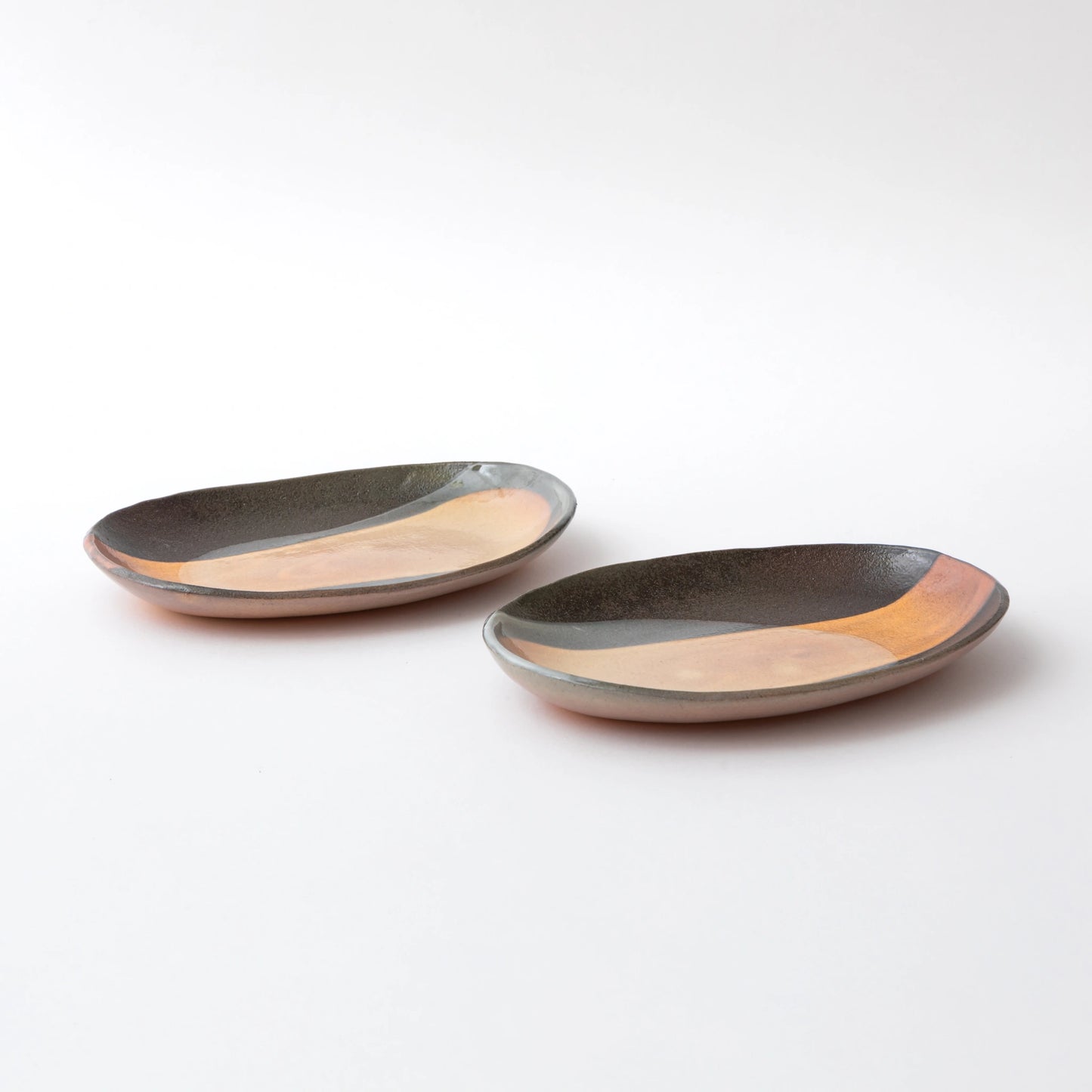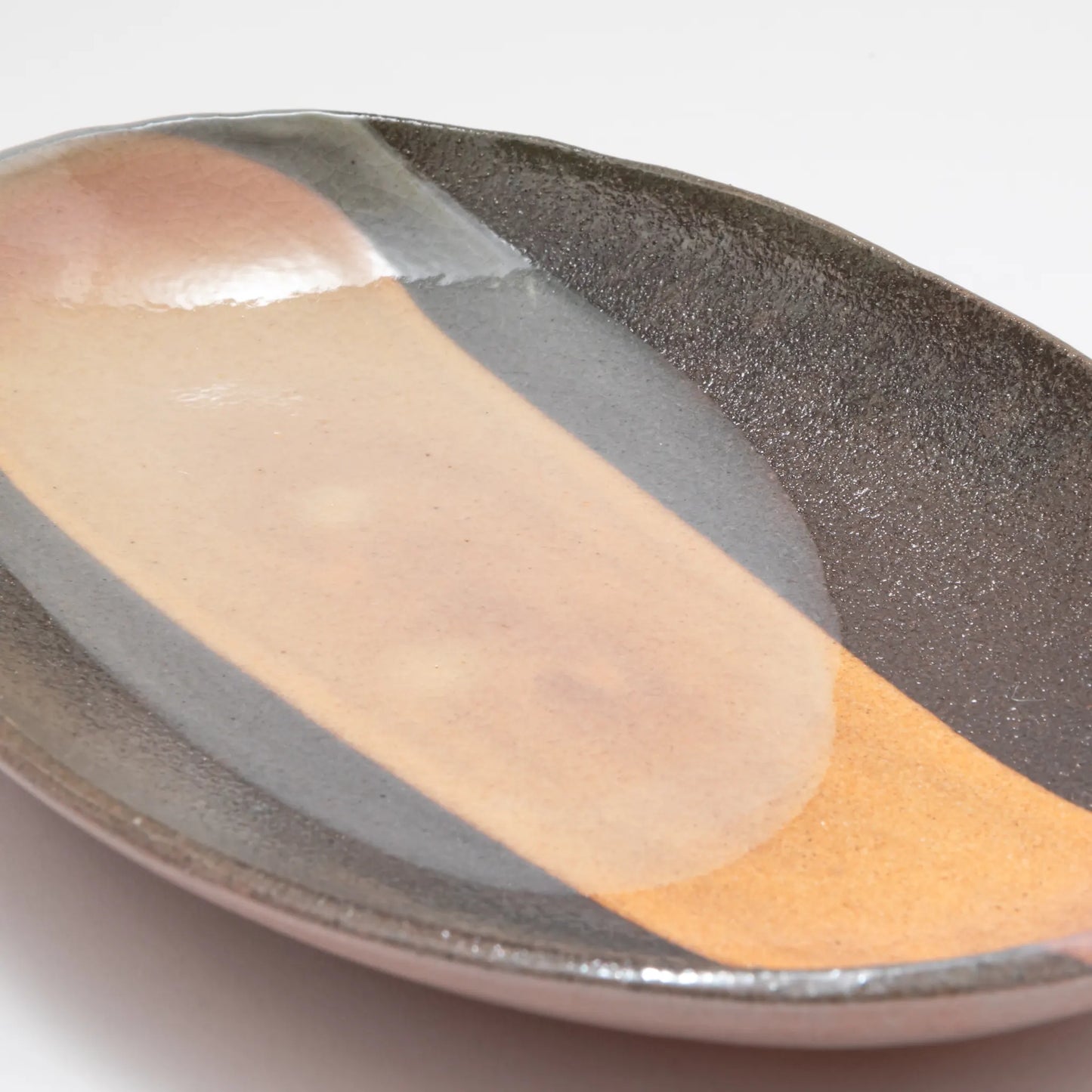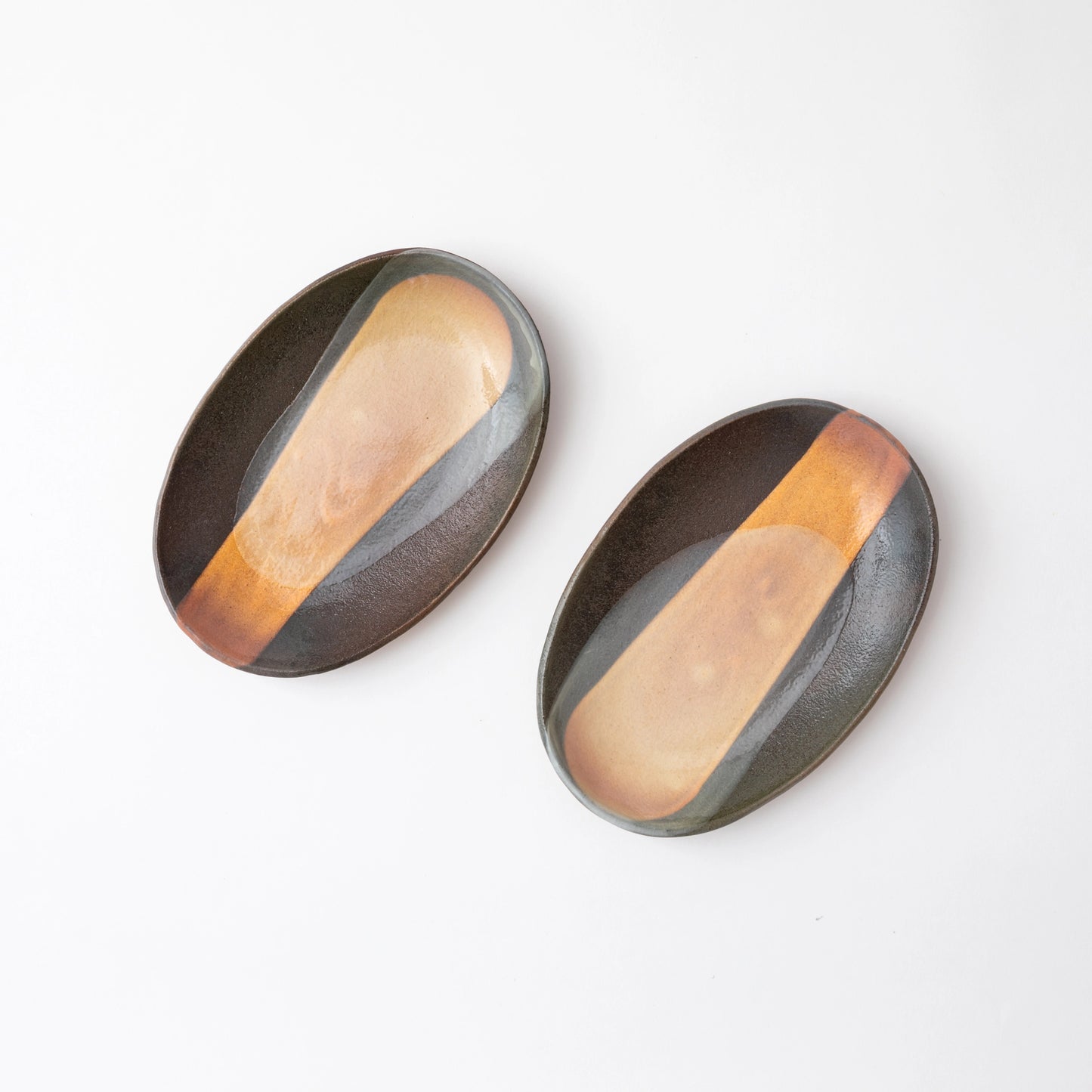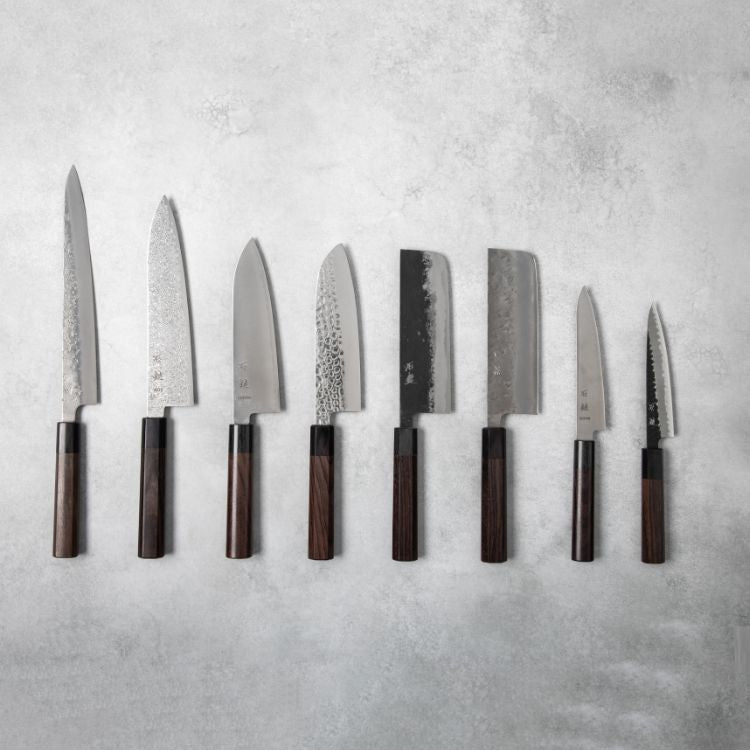Hagi Ware Kohiki Plates (Set of 2)
Hagi Ware Kohiki Plates (Set of 2)
Only 2 left in stock
Couldn't load pickup availability
A gentle meeting of ash, earth, and fire—these oval plates from Yamato Harunobu Shoroku Kiln reflect the quiet confidence of Hagi ware at its most expressive. Layers of warm ochre and smoky grey move across the surface like brushstrokes, blending soft matte textures with a glassy, kiln-born sheen.
Each piece is shaped and glazed by hand, allowing subtle variations in hue and contour. The palette—neither fixed nor forced—evokes the spontaneity of the firing process, where molten ash meets clay in unrepeatable ways. Slightly raised at the rim, the plates offer both function and poise, ideal for serving seasonal dishes with understated elegance.
This set carries forward over a century of ceramic tradition—quietly, and without compromise.
Detail
Detail
Care & Use
Care & Use
- Check our tips for care & use.









